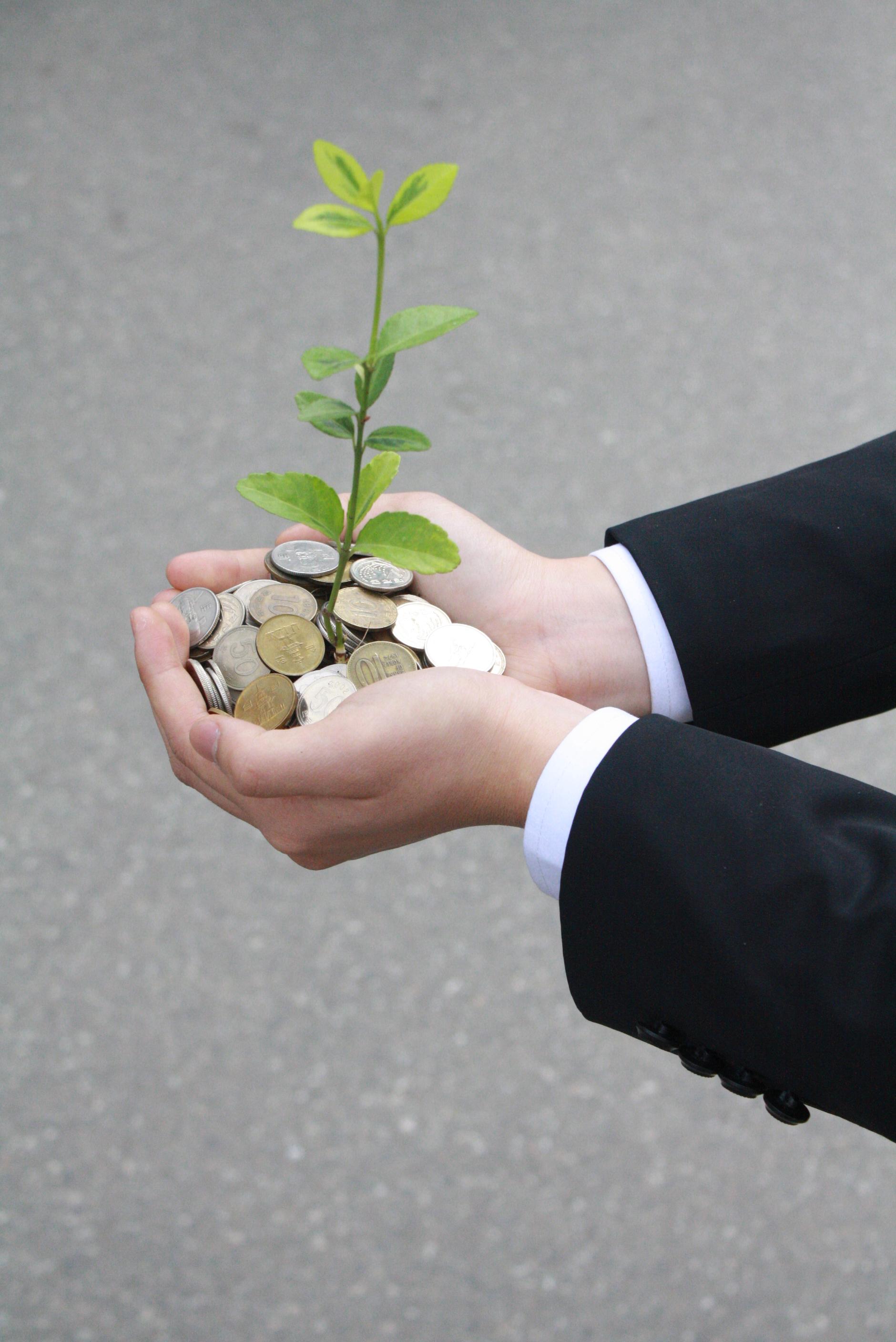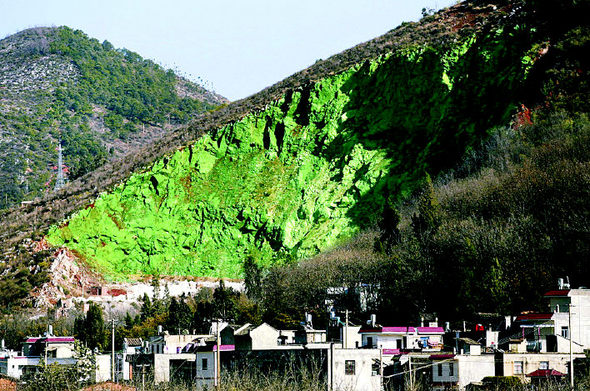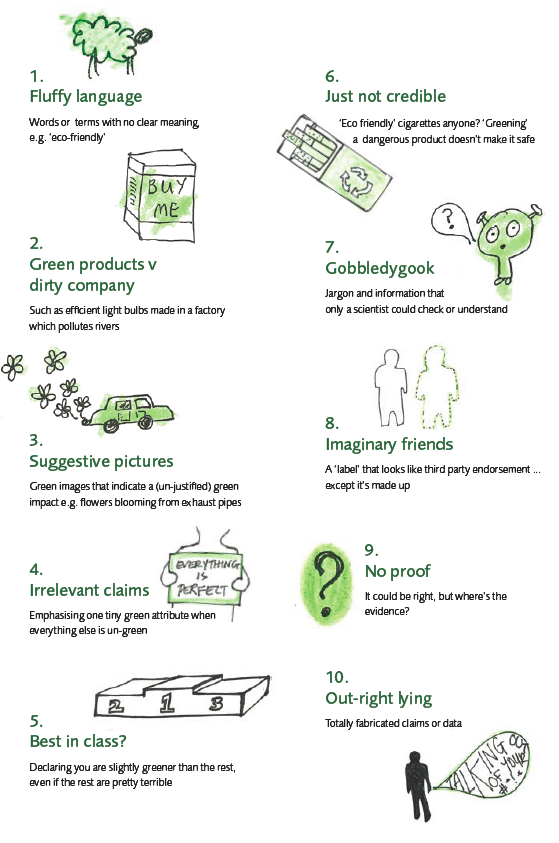Greenwash: a fairy tale that only feels green

YEARS AGO, villagers in southwestern China were puzzled by the county government's decision to paint an entire barren mountainside green. It was an unusual attempt to "green" the area, giving a false impression to the public that the government was protecting the environment. However, this green paint is never environmentally friendly, no matter how green it may seem. Moreover, it has been discovered that the total cost of the green paint was enough to plant actual trees over five or six mountains. This incident is one of the most famous cases of “greenwash,” meaning policies that are just pretending to be green. Even though we might not recognize these much, there are lots of greenwash policies by both governments and companies. The Yonsei Annals took the opportunity to review green policies and to survey 1,006 Yonseians’ opinions about green policies.
Green policies in government projects

A quotation from President Lee’s speech, “Green Growth is the way to go," became a popular catch-phrase. The president emphasized green technology and industry and pledged to increase energy independence and the supply of new and renewable energies, with a 1 billion annual investment to promote climate-friendly businesses until 2012. However, is Korea really moving in the right direction for a greener society? Over 50% of Yonseians answered that they do not know exactly what the Green Growth policy is. Moreover, 60% of Yonseians think that these policies would only be helpful to economic growth overall, but not particularly being environment-friendly. One of President Lee’s main pledges is the construction of large dams across the four major rivers in Korea. The government advertises this project as a leading project of Green Growth and as one of the flood control policies to prepare for climate change. Yet, Yonseians doubt the claimed environmental benefits of the project. In their messages to President Lee, many requested him to “think twice before taking action,” and there was even a threat to “emigrate if the waterway is constructed.” A total of 76.44% of Yonseians are against the construction, and the two main reasons are “it is economically inefficient” (40.41%) and “it is harmful to nature” (26.85%). In addition, civic environmental organizations such as Green Korea United (GKU) strongly argue that near-extinct species may be killed during the construction, and the water quality will also worsen. Such opposing voices suggest that the Four Rivers Project is nothing more than a large scale civil engineering construction project, damming up the rivers and dredging riverbeds that will only cause severe water pollution and ecosystem degradation.
While Japan is pursuing an environment-friendly policy under the slogan of "From Concrete Towards People" to remove its stigma as a country of heavy construction, the Korean government is getting bogged down in its old trend of destroying nature. When the Four River “Restoration” Project which is also called the Four River “Destruction” Project by environmental groups is completed, the four major rivers which are the repository of Korean history, cultural heritage and ecosystems will face potentially fatal threats.
Expansion of nuclear power
A nuclear renaissance is taking place in Korea, which helped Korea become successful in bidding for a large-scale nuclear reactor project in the United Arab Emirates. According to this plan, nuclear power plants are expected to account for 33% of Korea's total power generation facility and 48% of power generation capacity. The Korean government emphasizes that strengthening the role of nuclear power is inevitable, in order to act against high oil prices and to ensure green house gas emissions reduction. In the end, nuclear power becomes the energy source supporting the Green Growth policy.
In fact, uranium is also a limited resource like fossil fuels. A study by Green Korea United assumes that the number of nuclear plants will not change, and showed that uranium reserves cannot last more than 50 years. Operating fast breeder reactors to reprocess the used nuclear fuel costs a great deal and carries very high risks. Nuclear power is not a low carbon energy source, considering the life cycle of uranium, which includes mining, refining and dismantling. So far, no country has found solutions to overcome the risks and manage high-level radioactive waste. With these unsolved problems, nuclear power has not been recognized as a clean energy source at the climate change conferences; nevertheless, there is never-ending lobbying from the nuclear industry.
Historically, the Korean environmental movement started from the anti-nuclear movement. The Korean government has committed a grave mistake by putting nuclear power into the 'clean energy' category in order to make economic progress. Moreover, the government is doing everything to promote and expand nuclear power. This is utterly opposed to Green Growth. Perhaps a way to ensure energy supply security is the government putting an end to its nuclear power favoring policies, and focusing on energy demand management, increasing energy efficiency, and diversifying energy resources with renewable energy, LNG, and so on,. Although there will be higher expenses for the time being, when potential environmental harm becomes reality, the cost of solving these problems would be exponentially higher.
Green marketing of companies
Sales promotion using green marketing is also thriving in the private sector. Green marketing is the mar

Companies advertising the eco-friendliness of their products can be doubted due to their unclear language. For example, Lotte, one of the biggest conglomerates in Korea, advertises that they have a large proportion of green products on sale in their department stores. On the other hand, the company is harshly criticized for making giant golf courses, by drilling and making holes at Mt. Kyeyang. Currently, Lotte is alleged to have violated environmental preservation rules. As seen in this case, even though the companies seem to be engaged in green marketing, they are often not helping the environment in reality.
Up until now, CorpWatch, one of the biggest environmental activist groups in the world, has never given a Greenwash Award to simple environmental image ads by auto companies. TV and printed ads have so many examples of gas guzzling, unsafe cars pictured in dramatic natural landscapes that these ads are usually not original enough to deserve an award. In 2008, the depiction of an SUV on what looks to be a melting polar ice floe accompanied by wildlife is either so ironic, or so ignorant, that the organization made an exception and gave this Greenwash Award to GM. The irony is that SUVs are one of the causes of global warming, and therefore of the melting polar ice that threatens many of the species pictured in the advertisement. GM SUVs specifically are a big part of the problem. Are GM executives saying that their vehicles can survive anywhere, even on melting ice caps, and therefore global warming is not a problem? Or are they just counting on the public to miss the connection between the SUV on the ice and its role in causing that ice to melt?
Park Jin-hee (Policy Coordinator, Green Korea) says, “The ecology of commerce is one of the most teasing ironies that can never be real.” However, if companies truly want to take social responsibility, the entire vision of business should be valued differently. For example, 24-hour shopping malls in Korea could shorten their opening hours in order to save a tremendous amount of electricity. Such a transformation in attitudes could only happen with higher levels of consumer awareness about the environment. If consumers in Korea would agree to and applaud these attempts, companies could naturally find the “right” green way.
Finding the real “Green” way
If the government moves towards genuine Green Growth, environmental organizations should welcome such a policy. However, as mentioned earlier, ”Low Carbon Green Growth” in Korea is going towards Gray Growth, with the implementation of nuclear power and large scale civil engineering construction projects. They are based on construction plans that will destroy life systems, such as the Four Rivers Project, aggressive urban redevelopment, deregulation of greenbelts, and urban development within national parks. The endless desire for growth is just green-washing.
One popular journalist sadly asked, "Why are all the bulldozers in the rivers and streams if we are going for Green Growth?" If we are concerned about bio-diversity underwater, we should stop the large scale embankment construction and dredging work. Government and its Green Growth policy ignore “the new harmony of environment and human beings” and “social equity.” Korean society has always pursued growth and development. Now, it is up to the Korean citizens to ensure a much needed and a just transformation. Even though the Korean citizens chose the current government, recent opinion polls show that more than 70% of the people are opposed to the Four Rivers Project. Consequently, this critical public opinion has been roused against the faults and errors of the government's flawed policy of Green Growth. The Korean government’s Green Growth is judged as a successful model by the international community. For example, the United Nations Environment Program (UNEP) stated that Korea is leading the world in the field; however, it needs to get enough knowledge and understanding of the current situation in Korea before they pay this compliment. In this respect, the Korean environmental organizations will try to do their best to inform the world of the ugly facts of the Korean government's Green Growth policy.
Then how should Yonseians strive to make an eco-friendly world? While a total of 73% of Yonseians are active in recycling and 59% of Yonseians always try to turn off the light when they are leaving rooms, there are only 2% of Yonseians who are actually participating as environmental activists. However, participation in daily lives on a personal level is neither the right solution to an urgent problem, nor an effective one. "...recycling aluminum cans in the company cafeteria and ceremonial tree plantings are about as effective as bailing out the Titanic with teaspoons. While recycling and tree planting are good and necessary ideas, they are woefully inadequate,” says, Park. Also, 36% of Yonseians answered that they think economic value outweighs environmental value. This kind of perspective that does not appreciate the environment enough allows the greenwashing of the government and companies. When the potential harm is so great, we cannot sit around waiting for ‘certainty’ whether environmental issues are urgent or not. Putting economics ahead of the environment will make some countries not exist anymore. The environment is fundamental to a flourishing life on this planet.

* * *
Paul Hawken asks in his book, The Ecology of Commerce, “How can business itself survive a continued pattern of worldwide degradation in living systems? What is the logic of extracting diminishing resources in order to create capital to finance more consumption and demand on those same diminishing resources? How do we imagine our future when our commercial systems conflict with everything nature teaches us?” These are questions we should seriously consider. Korean environmental organizations do not only lead opposition movements against governmental projects but also start deep discussions of green philosophy within Korean society. This may be a good first step towards “greening” our country. People should realize that it may be a long and tiring effort, but it will surely pay off by making the future of Korea, and the Earth, much greener.
<Editor's Note>
Until 1990s, discourses were not formed to discuss issues regarding the destruction of the environment. From then, a large number of natural disasters such as earthquakes, tsunamis, and floods suddenly increased exponentially and only recently could we see many green products proclaiming to consume less energy and help nature recover. Suffering actual damages from natural disasters made people to pay more attention to protecting the environment. This also led to the start of the so-called “green marketing.” However, it is hard to find out which products are really helpful for the nature, and sometimes, one can abuse the cause of protecting the nature. At this point, The Yonsei Annals covered green marketing’s present condition and had an in-depth survey on what Yonseians think about environmental protection.
Ra Yeon-jae, Editor of Research Div.
<Spotlight>
I remember being surprised to learn the word “greenwash” for the first time. Reading articles about the greenwashing of governments and companies, I wished the word was just a made-up concept. However, it was actually everywhere. Therefore, I sought to contribute by helping people find out about it and challenging it. "...recycling aluminum cans in the company cafeteria and ceremonial tree plantings are about as effective as bailing out the Titanic with teaspoons.” This interview with an environmental activist saddens me to realize how individual efforts could be meaningless compared to the power of government and companies. However, the constant attempts to increase people’s awareness are the only way to change attitudes among the “big guys”. We see a lot of Hollywood catastrophe movies that show what may happen if we over-consume and waste our planet’s resources. While conducting research and interviewing specialists, I felt anxious because movie scenes could soon come to reality. I hoped that readers will share this anxiety as well.
Box 1: Highlight: Yonseians’ thoughts on environmental value
1. How much you are interested in environmental issues?
a. A lot (7%)
b. A little (30%)
c. So-so (40%)
d. Not much (21%)
e. Not at all (2%)
2. How would you describe your attitude towards environmental issues?
a. Environmental issues are not my business and totally up to the government (7%)
b. Think environmental issues are important, but don’t know how to deal with them (49%)
c. Don’t think that environmental issues are serious enough to take action on (1%)
d. Don’t think that personal actions would improve environmental issues (23%)
e. Think that personal actions could improve environmental issues (18%)
3. What kinds of activities do you do in daily life to improve environmental issues? (Plural responses)
a. Recycling (73%)
b. Try not to waste water (39%)
c. Turn off the light (59%)
d. Participate in green activist groups (2%)
e. Donate to green activist groups (3%)
f. None at all (10%)
4. Do you agree that schools should be more focused on teaching environmental issues over practical subjects?
a. A lot (4%)
b. A little (16%)
c. So-so (60%)
d. Not much (22%)
e. Not at all (1%)
5. Do you agree that humans have right to renovate nature if necessary?
a. A lot (5%)
b. A little (27%)
c. So-so (25%)
d. Not much (38%)
e. Not at all (11%)
6. In your daily lives, does economic value take precedence over environmental value?
a. A lot (2%)
b. A little (41%)
c. So-so (40%)
d. Not much (16%)
e. Not at all (1%)

